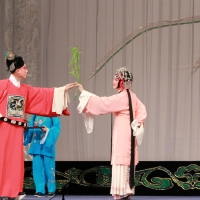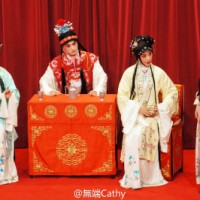You are currently browsing the category archive for the ‘Theory’ category.
Category Archive
Quote: Poetry and Advertising
December 2, 2012 in Theory | Tags: Advertising, Art, Holy Barbarians, Lawrence Lipton, literature, Poet, poetry, Sales | Leave a comment
Poetry and Advertising
from http://en.wikiquote.org/wiki/Language_in_Thought_and_Action#Poetry_and_Advertising
Language in Thought and Action (1949) by S. I. Hayakawa
The Symbols We Live By
- To repeat, advertising is a symbol-manipulating occupation. The symbols of fashion and elegance are used to glamorize clothing and cosmetics. The symbols of youthful gaiety sell soft drinks and candy bars. The symbols of adventure and sportsmanship are used to promote cigarettes and liquor. The symbols of love and delight in one’s new baby completely appropriated by the sellers of prepared baby foods, canned milk, and diaper services. Advertising is a tremendous creator and devourer of symbols. Even the symbols of patriotism are used for the purposes of salesmanship. (p. 269)
- The problems of the unsponsored poets in an environment dominated by advertising are … difficult. Poets, too, must work with the symbols that exist in the culture, and they must create new ones as well. Almost all the symbols of daily living — especially those symbols that have any connotations of happiness and joy — have been appropriated by the advertisers. If unsponsored poets seem to concern themselves too much with negative moods, such as disillusionment, despair, or cynicism, part of the reason may well be that the positive moods have come to smell too much of salesmanship. […] One reason for the obscurity of modern poets may again be that the familiar symbols of courtship, home, mother, nature, and love of country have been so completely appropriated for commercial purposes as to appear unusable to the unsponsored poets. He is practically driven to use obscure symbols out of the Upanishads or Zen Buddhism in his search for something the advertisers have not already used. (pp. 269-270)
- Some poets, more aware of the world around them than other poets, have known very clearly who their chief rivals are in the business of manufacturing dreams — and, therefore, patterns of living. […] the so-called “beat” poets have made something of a cult of rejecting the consumer-advertising culture. […] To be “hip” is, among other things, to have ceased to believing the ads. “I can do without things,” cries a newly liberated young lady of Venice, California, quoted by Lawrence Lipton in The Holy Barbarians. “God! — do you know what a relief that is?” (p. 270)
Related articles
- How To Break A Poet’s Heart – Poem by J.Gawrych (inparenthesesmag.com)
- On Poetry (beautifulrailwaybridgeofthesilverytay.wordpress.com)
- The poets are wrong of course. (objetsdevertu.wordpress.com)
- A Wordle of Poets! (pm27.wordpress.com)










